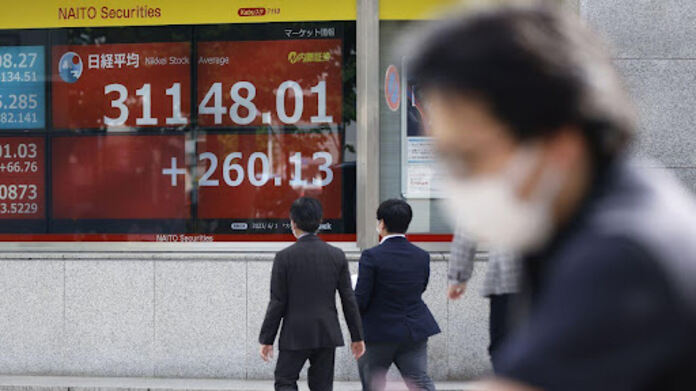
Companies that have securities listed on the Tokyo Stock Exchange have ramped up the number of shares they buy back annually, and some insiders believe that this is increasingly looked at as an alternative to issuing dividend payments. Investors who currently hold long shares tied to these firms in their portfolios can often make a greater amount of money selling them than they could be holding them, which may explain the comparison to a more conventional donative check. While share buyback operations have often been looked at as a sign that a company is suffering, most of the firms in question are established organizations with clear business plans.
Last year, Tokyo exchange-listed companies bought back a record ¥9.2 trillion worth of shares. Analysts believe that around ¥4.6 trillion worth of shares have already been bought this year, and the market is on pace to greatly exceed last year’s sum. That’s leading some economists to insinuate that this is the beginning of a much larger trend in Japanese business that could very well spread around the world.
Reasons Healthy Firms Buy Back Stocks
Growing firms will often aggressively issue new shares in order to raise fresh capital that they can invest in developing new products and bringing them to market. This can dilute the ownership group over time since a greater number of private investors are given an opportunity to buy into the corporation in question. Many of Japan’s top brands are well over 100 years old, which means that they’ve issued countless shares over decades while pursuing aggressive growth policies. Some firms with excessive cash reserves, such as the Nankai Electric Railway group, have elected to use this money to issue specialized marketing promotions designed to draw in new clients while others have taken it straight to the exchange.
A majority of companies that do so have found that they actually end up with more decision-making power once they’ve done so. Representatives from Toyota Motor Corporation, for instance, planned to buy back around ¥150 billion of its own stock in order to take advantage of what many were calling a rather conservative forecast. Outstanding shares are now more than likely given quite a bit more power whenever the board of directors calls for a vote.
Impact of Buybacks on Price-per-Share
In spite of the fact that many economists view share repurchasing operations in a bad light, some investors now feel that they can stand to make a fair amount of money if some of the companies they hold buy their own stocks back. Matthew Campbell, head of Institutional Equities at the Chiba Capital Financial Group, seems to recommend cautious optimism when it comes to watching any such trends in the financial markets. Retail investors may wish to sell stocks that have appreciated in value in order to reduce the risk that they would shed any of their stock prices in the future.
Despite claims to the contrary, there’s at least some evidence that repurchasing shares might not have any major long-term impact on share prices either way. That’s especially true in Japan’s current marketplace, with the nation experiencing a measurable trade deficit in spite of having an economy largely based on foreign exports. As overseas shipments of automobiles and other durable goods continue to rebound, it’s likely that at least some companies will rally on the exchange.
Potential Return to Paying Dividends
With the sheer number of potential payment outlets increasing, chances are that companies currently engaged in major stock repurchasing plans will eventually return to paying a more traditional dividend. Organizations that offer corporate card services and the ability to extend lines of credit based on stock ownership will often look to dividend values when judging whether a given security is a worthwhile form of collateral. That makes it even more likely that the current stock buyback trend won’t continue indefinitely.
Rallies by conventional agricultural commodities are also likely to impact the viability of this trend. Companies may feel that they have to return to issuing regular dividend payments as a way to entice investors who would otherwise look toward some alternative investment such as these and other futures. Nevertheless, Japan’s unique economic situation is likely to allow buyback operations to continue to grow for at least the next few quarters.
Cash-strapped retail investors might soon learn that’s good news for them if they suddenly find that a company wants to purchase a number of shares they’ve had burning a hole in their portfolios for the last few months.
- Featured News RSS feed
- Investing News RSS feed
- Daily Press Releases RSS feed
- Trading Tips RSS feed
- Investing Videos RSS feed
Follow PressReach on Twitter
Follow PressReach on TikTok
Follow PressReach on Instagram
Subscribe to us on Youtube




